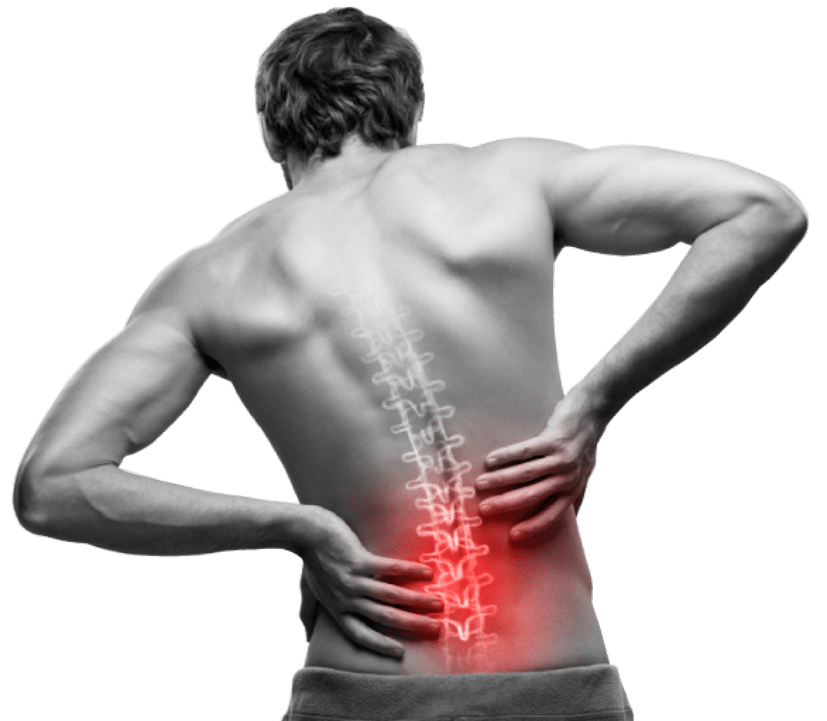What to Expect When I Visit a Sciatica Pain Doctor?
February 10, 2021
Never been to a sciatica pain doctor until now? Here are 5 things to know before your first visit
Lower back pain is the single leading cause of disability worldwide. One of the main types of low back pain is sciatica pain, which happens commonly especially for people over the age of 40. This type of pain is very distinctive. While the most common symptom of sciatica is pain in the lower back, the pain can often radiate towards the hips, legs, and even feet, keeping patients from fully enjoying their day-to-day life.

Sciatica pain happens due to the sciatic nerve getting pinched, irritated, or damaged. Because the sciatic nerve spreads through most of your lower body, other symptoms include leg pain, a “pins and needles” sensation in the feet, weakness in your leg, or numbness.
If you are currently experiencing these symptoms, it is time you consider paying a visit to a sciatica pain doctor near you, in New Jersey. Our board-certified back doctor can determine what is bothering your sciatic nerve. Keep in mind that sciatica is a symptom, not a condition – the real condition hides under this pain and can only be determined by a trained pain physician.
The Harvard-trained doctors at Pain Treatment Specialists are ready to help you find accurate pain management options that will help reduce your sciatica pain. If you are reluctant to schedule your first visit to a sciatica pain doctor, because you don’t know what to expect from the experience, we are here to help.

Below is what you should expect to happen during your first appointment with a sciatica pain doctor.
1. Expect a physical examination
To determine what is causing sciatica pain, your back doctor will perform a thorough physical examination. By assessing your symptoms and understanding where exactly the pain is located, they will be able to determine the vertebra that is putting pressure on the spinal nerves.
The back doctor will start by performing a routine checkup, which includes checking your temperature, pulse, and heart rate, just as any doctor does during the first appointment. If these look good, the physician will move on to examining the painful area. They will also observe your posture and may ask you to do some exercises to observe how the pain is behaving.
Our dedicated back doctors might also recommend some additional diagnostic tests, such as X-rays, CT scans, and bone scans to make sure nothing is overlooked.
2. They will ask about your medical history as well
Besides a thorough physical examination, the back specialist will also want to discuss your medical history. This will help them put an accurate diagnosis and determine what is causing your sciatic nerve to hurt.
You will start by discussing your pain history. They will ask several questions about your symptoms, so it is recommended you keep track of their evolution up until the visit. Some of these questions include:
What other symptoms besides low back pain are you experiencing?
- For how long have these symptoms been present?
- Have you tried any type of sciatica treatment until now?
- Is this the first time you are experiencing sciatica symptoms?
- How has the pain evolved over the course of the past few days?
3. There may not be a clear diagnosis just yet
Because sciatica pain can have different effects on different people, the doctor may not be able to determine the root cause of your pain during the first visit. They may need the results of several additional tests in order to say for sure what the condition you are dealing with is.
The most common cause for sciatic pain is a herniated disk, but this is not the only reason. Some of the other conditions that may result in sciatic pain are:
- Degenerative disc disease
- Infections to the spine
- Lumbar spinal stenosis
- Injuries to the spine
- Spondylolisthesis
- Spinal tumors
Although the cause for sciatic pain is often not severe, it is still recommended that you don’t wait too long before contacting a doctor. Doing so can affect your diagnostic and treatment. If the pain does not go away with over-the-counter medicine, this is a sign you may be dealing with a more serious condition.
4. Prepare to discuss multiple treatment options
If the back specialist is able to determine the cause of your pain from the first visit, they will also discuss with you the methods of treatment available.
One of the biggest fears sciatica patients deal with is having to undergo a surgical procedure, but this only happens to a handful of patients. Most sciatica doctors will start with minimally invasive treatments, such as painkillers, physical therapy, and steroid injections.
The only time your pain doctor will recommend surgery is when all other types of treatment fail to provide the desired results.
5. You can ask your back doctor any questions you may have
Your doctor is here to help you understand your condition and find accurate treatment for it. They should be able to provide answers to any of your pain-related questions, so don’t hesitate to ask them more about sciatic pain.
There are several questions you can ask your sciatica pain doctor, including:
- Are these symptoms normal for my condition?
- How can I prevent further complications?
- Are there lifestyle changes I should make?
- What treatment options are available for me?
- Are there any disadvantages to this type of treatment?
- How long will it take for my back to heal and for me to feel healthy again?
- What lifestyle changes can I make to improve my condition?
The thing that matters most when searching for the right type of treatment for sciatic pain is finding a back pain specialist that you can trust. Our team at Pain Treatment Specialists is determined to work closely with you and find proper treatment to make sciatica pain nothing but a distant dream.
Come visit us at one of these 3 locations:
- in Paramus on Route 17, near the Paramus Park Mall,
- in Clifton, NJ, on Route 46 E, past the Ford dealership,
- in West Orange, near the Essex Country Club.
Book a Consultation
Scheduling a consultation with one of our pain treatment specialists is one of the best ways to determine the proper solution for pain relief.
Meet Our Team of Back Pain Specialists
All of our Pain Doctors in New Jersey are Harvard Trained and Board Certified in Pain Management

Back Pain Doctor Clifton & West Orange NJ
Dr. George Hanna
Dr. Hanna is a Harvard Trained back specialist in New Jersey and New York. He serves as Medical Director of Pain Management.

Back Pain Doctor Clifton & West Orange NJ
Dr. Laura Lombardi
Dr. Lombardi is a Harvard Trained back pain treatment doctor, currently seeing patients in Clifton and West Orange, New Jersey.

Back Pain Doctor Clifton & West Orange NJ
Dr. Shane Volney
Dr. Volney is a Harvard Trained back treatment doctor seeing patients in the NJ areas of Clifton & West Orange, and in NYC.

Back Pain Doctor Clifton & West Orange NJ
Dr. Michael Nguyen
Dr. Nguyen is Harvard Trained and Board Certified in Pain Management. His pain center accepts major medical insurances and Medicare.

Dr. George Hanna

Dr. Laura Lombardi
Dr. Lombardi is a Harvard Trained back pain treatment doctor, currently seeing patients in Clifton and West Orange, and Paramus New Jersey.

Dr. Shane Volney
Dr. Volney is a Harvard Trained back treatment doctor seeing patients in the NJ areas of Clifton & West Orange, and in NYC.

Dr. Michael Nguyen
Dr. Nguyen is Harvard Trained and Board Certified in Pain Management. His pain center accepts major medical insurances and Medicare.
